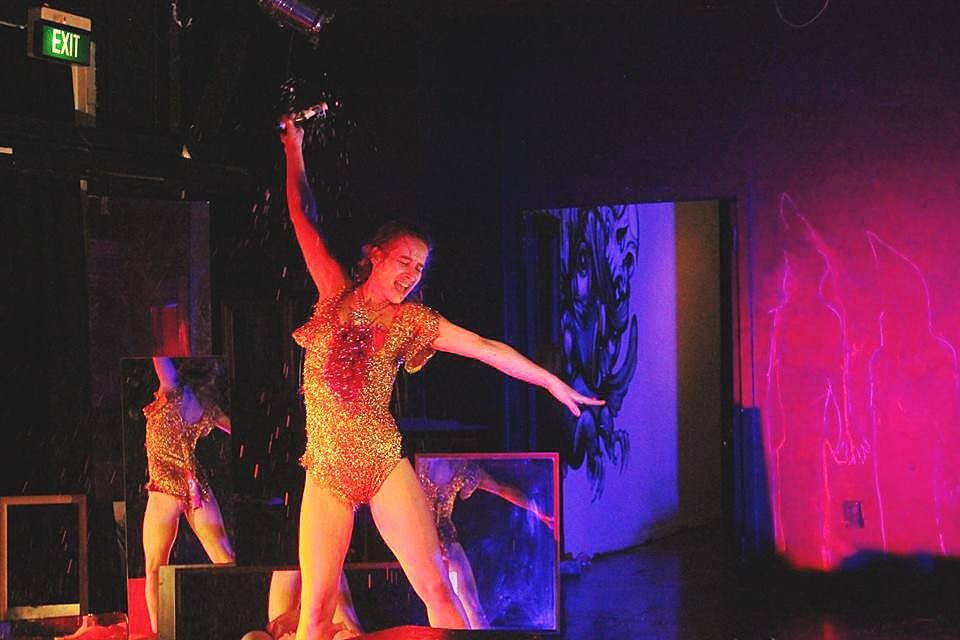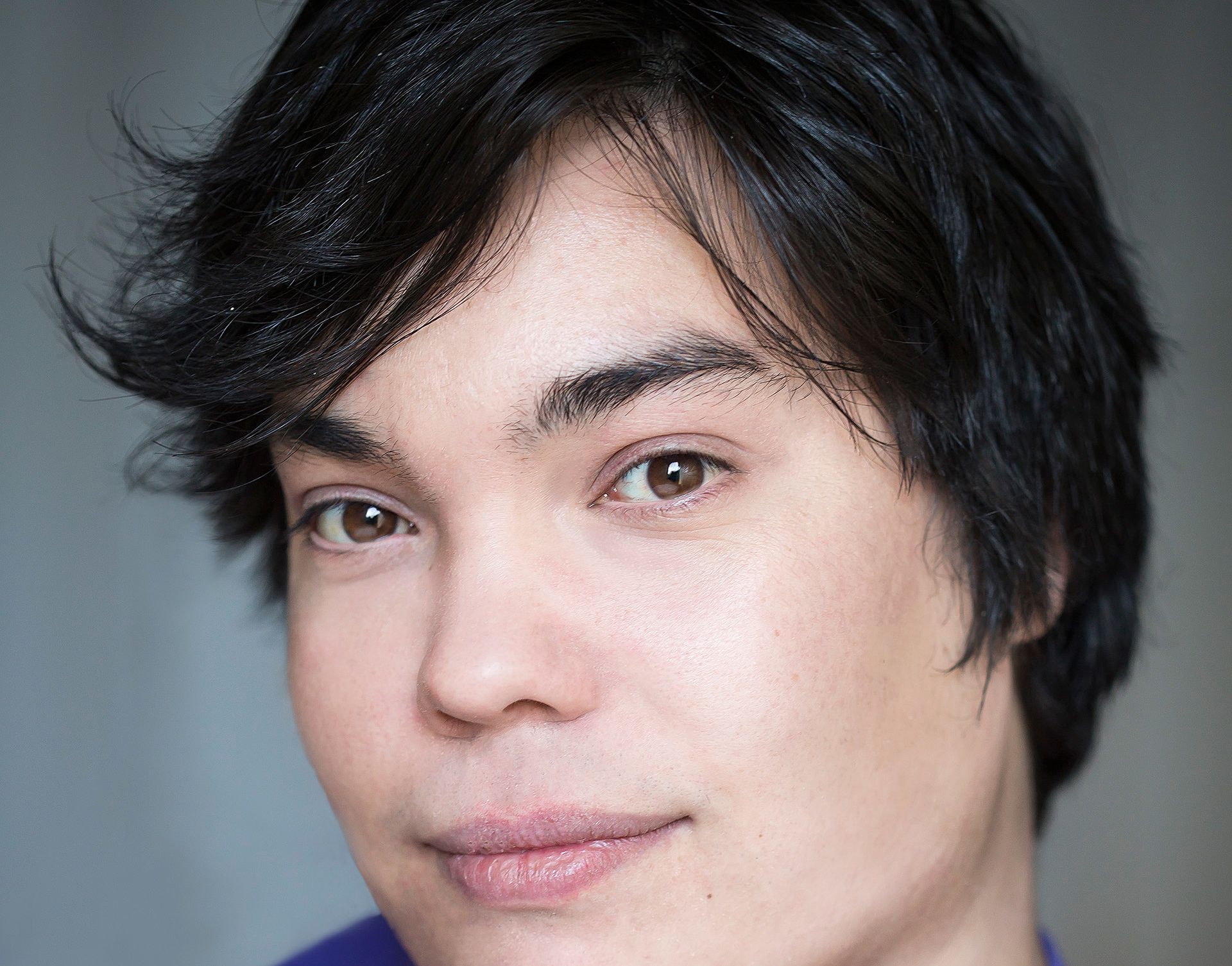Interview: Julia Croft on If There's Not Dancing At The Revolution, I'm Not Coming
Sam Brooks interviews Julia Croft about her feminist theatre show If There's Not Dancing At The Revolution, I'm Not Coming
If There’s Not Dancing At The Revolution, I’m Not Coming is a bracing piece of feminist agit-prop theatre created by performer Julia Croft. The show has garnered rave reviews and has now had two sell-out seasons at The Basement. We talked to Julia about creating the show, and what the work means to her.
If There’s Not Dancing At The Revolution, I’m Not Coming is a tremendously angry and joyous piece of theatre, at times bordering on performance art. It is simultaneously angry at the roles that women are required to perform in our pop culture, whether it’s in films like Titanic or Blue Velvet or songs like Taylor Swift’s ‘Love Story’ and The Ying Yang Twins’ ‘Whisper’, but it also celebrates the strength of women who are forced into these roles and coming out the other end if not smiling, then at least alive.
When I sat in the audience on a tremendously muggy Friday night, I felt everybody around me move with Julia, celebrating her performance of this work while also balking at things that we are assailed with every day, women treated as objects in films, music and advertising. Even when we saw things portrayed in an extreme way, a parody of a Carl’s Jnr advertisement in particular, it was shocking not because it was so extreme, but because it was not that far from what we see every day.
"It was a case of this insidious misogyny, where it was a powerful man thinking that he could grab a woman."
Earlier in the week, I had the chance to speak to Julia about If There’s Not Dancing; why she made it, how she made the work and what her influences were.
Julia decided to make the work in response to the world around her. She knew she wanted to make a work that discussed feminism and feminist theory. “I wanted to look at the cultural context, looking specifically at popular culture, the way women are objectified and the relationship between that and violence against women.”
The incident that kicked it off was the ponytail incident last year. “It was a case of this insidious misogyny, where it was a powerful man thinking that he could grab a woman. It was supported by other powerful men and women, thinking that it was a joke and that it was funny.”
“I got really interested in how violence and representation are related; violence against women comes from cultural context, where we’re taught in a really insidious way to view women in a certain way, taught to view their bodies in a certain way and men are taught to have ownership over women’s bodies because there’s a process of continual objectification.
It was rediscovering a famous film essay by Laura Mulvey, Visual Pleasure and Narrative Cinema, that triggered Julia’s analysis of popular culture, particularly film. “In the show we look at Titanic, Psycho, Pretty Women, Notting Hill, Blue Velvet through the lens of that male gaze. So not only is it about what is happening to women’s bodies onscreen but how the camera is complicit in the objectification of these bodies, and we play a bit with advertising tropes.”
One particularly harrowing scene in the show is derived from the 2005 remake of House of Wax. As Julia runs in terror away from an imagined villain, we see a memorable scene from the film, perhaps the only memorable scene from that film, where a character played by Paris Hilton is brutally murdered. Julia’s very real terror is juxtaposed against the pleasure, especially at the time, of seeing the much-maligned Hilton getting her come-uppance onstage, and it’s a disquieting comment on how we view women onscreen, especially in genres like horror. We’re used to seeing this, so much so that we don’t even think about why we’re seeing it.
If There’s Not Dancing… questions why we’re seeing it at all, and both Croft and the show know that there is no easy answer to that question.
*
Julia made the show with director Virginia Frankovich last year, and the original season in The Basement Studio was completely sold out, with rave reviews and countless people in the community calling it a must-see. The pair met during the making of Not Psycho and quickly formed a bond, and the form of the show came to them very quickly.
“The whole show starts and I’ve got every costume on and it’s a process of shedding layers, that sets up a parameter, and we could really feel the time in each section before we wanted to move on.”
The costumes are the some of the most stark and memorable moments of the show, and the show opens and closes with two images of costume in relation to femininity that pack a massive gut-punch.
"I think as a woman trying to perform in a body in a feminist way onstage, I want that to be a celebratory experience."
The show is full of task-based performance, which is when a performer has to a task to fulfill in the scene, rather than lines to say or emotional beats to hit. There are entire scenes throughout where Julia doesn’t say a word but performs a task as simple as giving drinks to the audience or dancing to a Nicki Minaj song, and the action, especially in the context of all the scenes around it, gains a poignancy, depth and sadness.
“This show is kind of a battle in some way because we’ve set up these tasks to keep a hold of the show, but what that meant is that in the end the form starts to say something about what it is to try, constantly as a woman, to be performing this femininity.”
“What I’m trying to do with this piece is to feel celebratory, intentionally, and because I love comedy we worked to make it really comedic. I think it’s easier for people to listen if they’re able to laugh and because I think as a woman trying to perform in a body in a feminist way onstage, I want that to be a celebratory experience.”
The phrase ‘celebratory experience’ is a perfect description of If There’s No Dancing At The Revolution, I'm Not Coming. For all the intelligent, prescient and important points that the show makes, it never feels like it is insisting upon itself. And for however clear Julia’s thesis and intent are, she nevers imposes that upon the audience. She presents us with facts,, but allows us to draw our own conclusions. That’s what makes this show special, that’s what makes this show important, and frankly, one of the best shows I’ve seen in a theatre in a long, long time.
When Julia performs, you can see the joy in her, the joy in sharing these injustices with the audience and in exposing something to the audience but also the anger. It’s less of a ‘fuck you’ and more of a ‘fuck this’.
So when Julia says “My version of a feminist performance is one that’s full of ‘fuck you’, but joy in the ‘fuck you’”, you feel that. You feel her joy, you feel her anger, you feel the show.
Read about Julia's other influences for the show in her Loose Canons piece from last year here.


